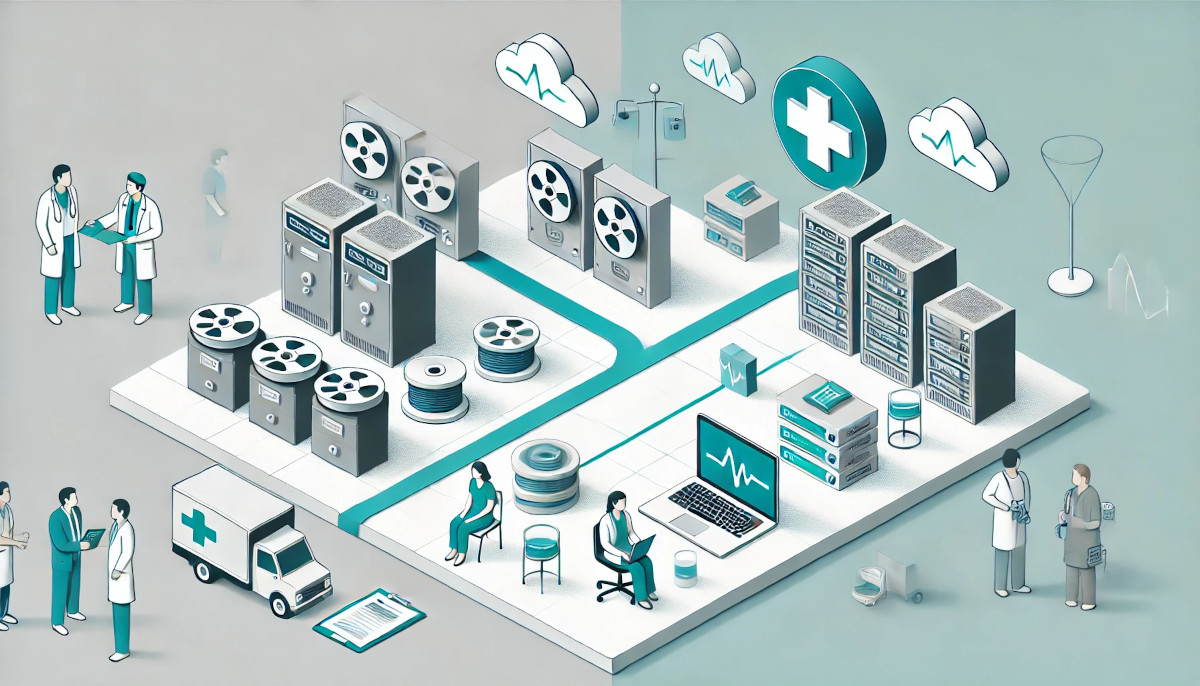Modernizing COBOL Systems in Healthcare: From Legacy Risk to Digital Resilience

Legacy Technology in a Life-Saving Industry
In healthcare, every second matters. Timely access to data can mean the difference between life and death. Yet many healthcare organizations still rely on COBOL-based systems built in the 1970s and 1980s to manage critical functions such as patient records, claims processing, and eligibility verification. While these systems have served reliably for decades, they are increasingly incompatible with the demands of modern care delivery. Regulatory mandates, digital health technologies, and rising cyber threats are converging to make COBOL modernization not just a technical upgrade, but a healthcare imperative.
Why COBOL Still Runs Healthcare IT
COBOL remains deeply entrenched in healthcare infrastructure. State Medicaid agencies, hospital systems, and payers use COBOL for essential backend operations, including:
- Claims Adjudication and billing workflows
- EHR Modules for patient records and clinical histories
- Scheduling and Eligibility Systems for outpatient and insurance coordination
- Pharmacy Benefit Management and lab result processing
These systems were designed for stability and batch processing—not real-time, API-driven healthcare. The result? Healthcare organizations face major bottlenecks when integrating new capabilities like telehealth platforms, remote monitoring, or patient portals. And because many of these systems have been patched for decades, their codebases are complex, poorly documented, and increasingly fragile.
What’s Driving Urgent Modernization in Healthcare
Healthcare is now facing an existential inflection point with regard to its IT infrastructure. Several urgent factors are driving the need to modernize COBOL systems:
- HIPAA Compliance Updates (2025): New rules demand modern encryption standards (e.g., AES-256), detailed audit logs, and breach notification capabilities—features COBOL systems were never designed to support.
- CMS Interoperability Mandates: To enable value-based care and patient mobility, CMS is enforcing FHIR (Fast Healthcare Interoperability Resources) API adoption, incompatible with legacy environments.
- Security Vulnerabilities: COBOL systems lack built-in protections against modern ransomware, phishing, or zero-day threats. Healthcare breaches now average $10.1M in cost per incident.
- COBOL Talent Crisis: With the majority of COBOL developers retiring by 2025, institutional knowledge is rapidly disappearing.
- Telehealth Growth: Legacy systems struggle to support synchronous video visits, remote diagnostics, and integration with wearable devices.
Together, these drivers create an urgent need for transformation.
The Risks of Standing Still
Every year a healthcare organization delays modernization, the risks and costs increase:
- Encryption Gaps: 63% of COBOL-based EHRs do not meet new HIPAA encryption benchmarks.
- Operational Downtime: Legacy system outages can delay patient care, impacting safety and regulatory compliance.
- Financial Penalties: Non-compliance with CMS interoperability rules can result in 2% Medicare reimbursement reductions—equating to millions in annual losses for larger hospitals.
- Cyber Incidents: Legacy vulnerabilities increase the likelihood of data breaches and ransomware attacks.
- Innovation Bottlenecks: Legacy systems block adoption of AI diagnostics, predictive analytics, and personalized care solutions.
A well-publicized example occurred during the COVID-19 pandemic, when outdated state COBOL systems delayed benefit processing for weeks—exposing the systemic weaknesses of legacy tech.
Modernization Approaches That Work in Healthcare
Healthcare providers can’t afford to rip and replace mission-critical systems overnight. That’s why phased, intelligent modernization is gaining traction:
- Phased Refactoring: Begin with less critical modules (e.g., claims or scheduling) and move toward core clinical functions.
- AI-Assisted Code Conversion: Automatically convert COBOL to modern languages like Java, Python, or C#, preserving business logic.
- API Enablement and Middleware: Bridge old and new systems using secure APIs and integration layers.
- Parallel Testing Environments: Run modern and legacy systems side-by-side to validate functionality and minimize risk.
- Cloud Hosting and Containerization: Transition to compliant cloud platforms (e.g., Azure, AWS GovCloud) to improve scalability and reduce on-prem costs.
These modernization paths help organizations unlock new capabilities without disrupting care delivery.
Why AI Is Essential for Healthcare Modernization
Manual modernization is slow, error-prone, and costly—especially for systems with millions of lines of undocumented COBOL code. AI makes modernization faster, safer, and more sustainable:
- 60–80% Automation: AI can convert the majority of COBOL code to modern languages, reducing reliance on scarce human experts.
- Business Logic Extraction: AI identifies critical workflows (e.g., medication reconciliation, insurance eligibility) for seamless preservation.
- Documentation Generation: Auto-documentation supports audit readiness and knowledge transfer.
- Risk Prediction: AI highlights dependencies that may impact clinical workflows or compliance thresholds.
In a field as high-stakes as healthcare, AI helps ensure modernization delivers value without compromising patient safety or data integrity.
CodeAura’s Solution for Healthcare Providers
CodeAura delivers a purpose-built platform for COBOL modernization in healthcare, designed with compliance, security, and clinical continuity in mind. Our offering includes:
- HIPAA-Compliant Frameworks: Prebuilt templates for secure modernization of claims, EHRs, and eligibility engines.
- FHIR API Enablement: Fast-track CMS interoperability compliance without disrupting clinical systems.
- Legacy Logic Capture: AI-powered tools preserve undocumented workflows embedded in decades-old systems.
- Healthcare System Integrations: Compatibility with major vendors like EPIC, Cerner, Meditech, and state-run Medicaid platforms.
- Zero-Downtime Transitioning: Parallel execution models that ensure uninterrupted operations during migration.
Whether you’re a hospital system, payer, or state health agency, CodeAura helps you modernize legacy systems without disrupting mission-critical care.
Don’t Let COBOL Compromise Patient Care
In today’s healthcare environment, outdated COBOL systems aren’t just inefficient—they’re dangerous. As compliance deadlines near and digital expectations grow, the cost of doing nothing is rising exponentially.
Modernization is not about replacing what works—it’s about enabling what’s next. Safer data, faster decisions, and better patient outcomes all begin with modern, resilient IT infrastructure.
Let’s Talk About Your Healthcare Systems — Schedule a modernization session with CodeAura today.

